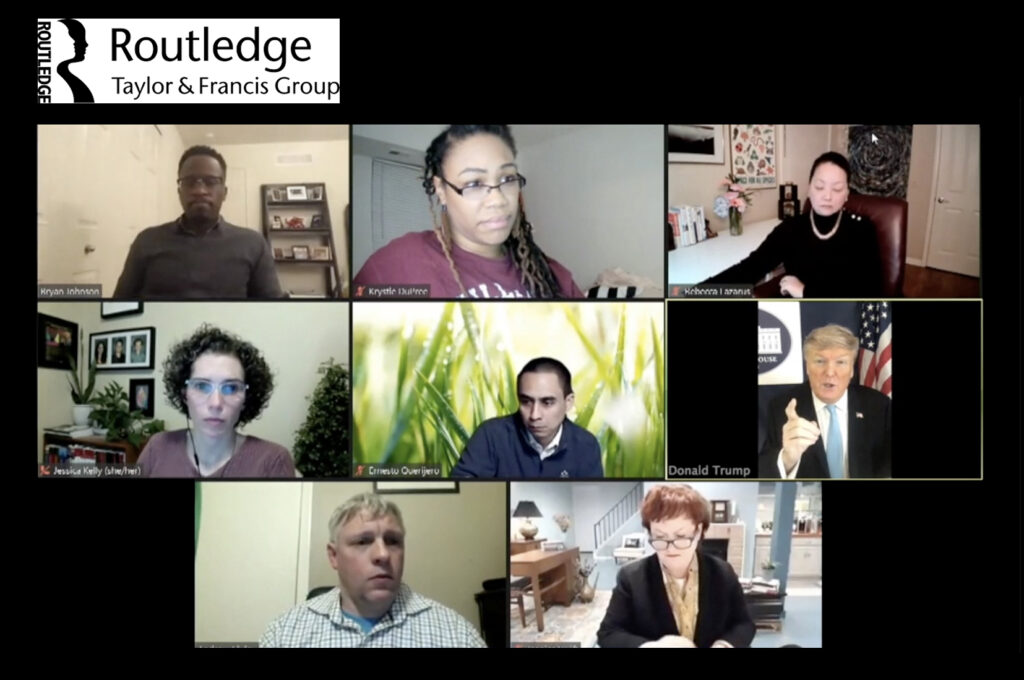Rebekah Modrak contributed a chapter to the recently published book Art-Based Research in the Context of a Global Pandemic, which explores the opportunities offered by art-based research. Art-Based Research (Routledge 2023), edited by Usva Seregina and Astrid Van den Bossche, considers the central, illuminative role that art-based research plays in our understanding of the unfolding crises of the Covid-19 global pandemic. Contributions to the book capture and explore lived experiences of the pandemic and begin a discussion about how meaning-making is changing through and beyond the pandemic. The book further explores how the practice of art-based research in itself has been challenged and transformed.
Modrak’s chapter, titled “‘Public School Teachers, You All Completely Disgust Me!’: How My Fake Trump Fought the Revolt of the Elites in Pandemic-era Ann Arbor,” reflects upon an artwork she created during the first year of the COVID pandemic in which she studied a group of consumer-minded parents who regarded public education as a ‘service’ like any other, subsidized by their tax dollars and, therefore, answerable to them. Incensed by the choice to shift learning to virtual classrooms early in the pandemic, before vaccines were available, this group of parents gave public commentary at Board of Education meetings disparaging the expertise of teachers, unions, and school board representatives and tacitly embracing the corporate paradigm that regards public schools as purveyors of goods and services, beholden to customers. In her chapter, Modrak describes hiring a Donald J. Trump impersonator to reread excerpts of these parental criticisms aloud in school board meetings, recording Trump’s diatribe, and inserting the video into a pre-recorded Board of Education meeting as though Trump had been one of the public speakers. The video work was introduced into Facebook groups to elicit conversations about the toll such tactics were taking on teachers.
